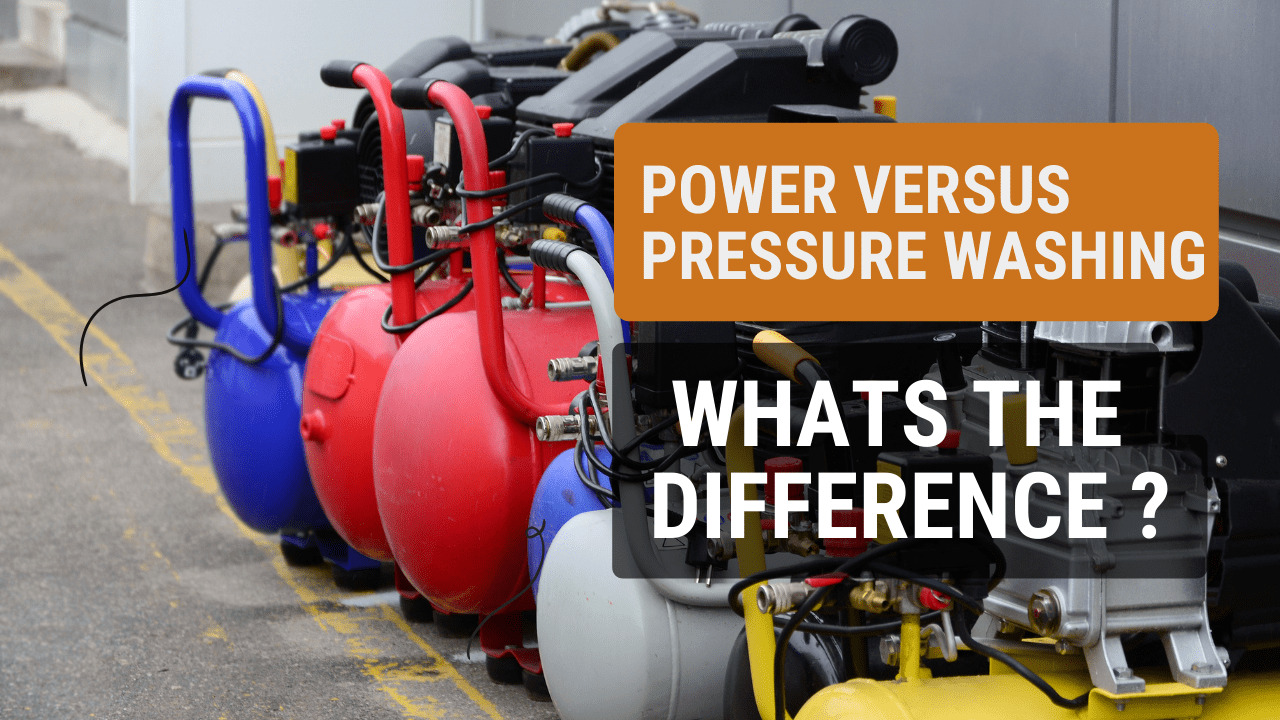In 2018, the global pressure washing machine market had an estimated value of $1.8 billion. By 2020, experts estimated it to have grown to $1.95 billion.
One reason for that growth is the increase in home maintenance projects. For example, 76% of US homeowners completed a home improvement project in 2020.
So, if you’re thinking of improving your home too, one of the best places to start is with its exterior. Power or pressure washing can give it an instant “facelift.”
The question is, which of these two should you go with? This guide will help you determine the answer, so be sure to read on.
Table of Contents
Power and Pressure Washing 101
Power and pressure washing are cleaning methods that rely on high-pressure water. Both processes involve the use of washers, equipment capable of pressurizing water. These cleaning machines pressurize water with a pump connected to an engine or a motor.
The pump is responsible for accelerating the water fed to the washer. The machine releases the pressurized water through a special hose with a nozzle. The water then comes out of the nozzle, the very tip of the spray hose, in spray form.
Nozzles are interchangeable, letting you customize spray angles based on the job. Their angles influence the wideness or narrowness of the water spray. Moreover, the tips dictate the intensity at which the water hits the surface.
The Key Difference Between the Two
Power washing and pressure washing are the same in that they use high-pressure water. The main difference is that power washing comes with the extra element of heat.
So, a power washer produces heated pressurized water. By contrast, a pressure washer generates unheated high-pressure jets of water.
When Should You Use Power Washing?
Power washing is best for cleaning heavily greased surfaces that can withstand heat. These include concrete or cemented surfaces, including driveways, garage floors, and walls. The high-pressure hot water can blast away stubborn dirt, mold, mildew, and even chewing gum.
So, if your driveway or garage floors are full of large motor fluid stains, go with power washing. The heated water allows grease and oil to dislodge from surfaces faster. This is also why cleaning oil spills in bodies of water sometimes use pressurized hot water.
What About Pressure Washing?
Like power washing, pressure washing can also remove caked-on dirt, grease, and grime. However, a gas or electric pressure washer may be better for more fragile surfaces. These include brick, masonry, and wood, which can be more prone to heat damage.
Moreover, some pressure washing techniques involve adding cleaning solutions to the pressurized water. According to this commercial pressure washing guide, these methods often use lower pressures. That’s because the cleaning agents can already clean surfaces thoroughly.
So, if you feel worried about cleaning a surface with very hot water, go with pressure washing.
Choose the Right Method to Prevent Surface Damage
As you can see, heat is the key element that makes power washing different from pressure washing. Both are effective, but power washers are best for stronger, tougher surfaces. By contrast, pressure washing is best for surfaces like painted walls or wooden decks.
If you’re still on the fence about which method to go with, you can just go pro instead. This way, you don’t have to buy a machine yourself, and it’ll be safer and faster anyway.
Looking for more home, architecture, or construction guides? Check out our recent posts for more tips and tricks then!





